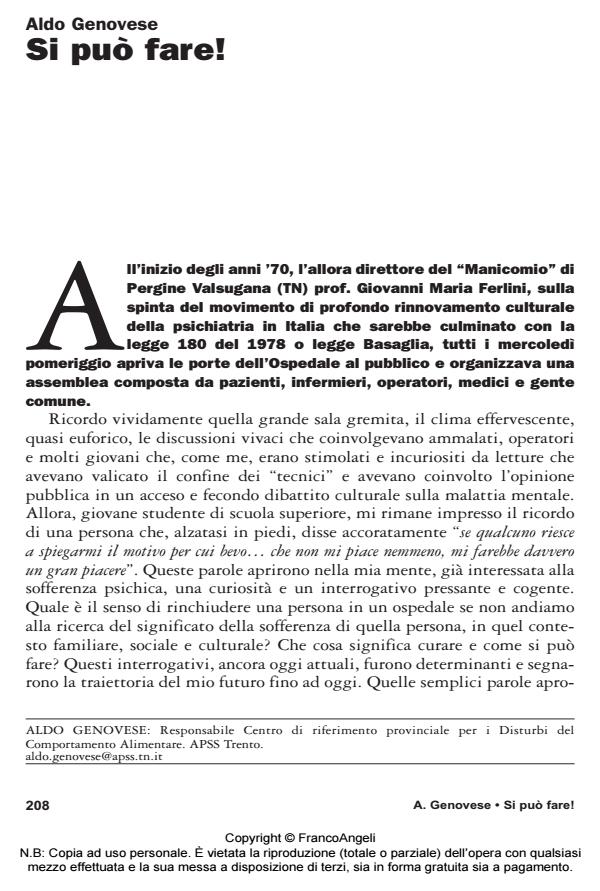If the psyche is the reflection of the body. A new alliance between neuroscience and psychotherapy
Journal title PSICOBIETTIVO
Author/s Aldo Genovese
Publishing Year 2016 Issue 2016/3
Language Italian Pages 17 P. 208-224 File size 134 KB
DOI 10.3280/PSOB2016-003013
DOI is like a bar code for intellectual property: to have more infomation
click here
Below, you can see the article first page
If you want to buy this article in PDF format, you can do it, following the instructions to buy download credits

FrancoAngeli is member of Publishers International Linking Association, Inc (PILA), a not-for-profit association which run the CrossRef service enabling links to and from online scholarly content.
The author underlines how the recent important developments of neurosciences, today allow a full re-integration of the mind-body unity, proposing mind as linked not only to the brain neuronal structure, but to the total body, as mediator of the exchanges and connections with the external world. Moreover some meaningful neurosciences discoveries, as the nature essentially "relational" of mind, the "implicit memory" and particularly the "mirror neurons" give neurophysiological supports and confirmations to many experimental and clinical issues of developmental psychology and psychotherapy, concerning the importance of the "implicit relational knowledge" and the analogical and metaphorical languages, the empathy in therapeutic relationship, the dynamics of therapeutic change. The Author take into account these implications with a particular reference to systemic psychotherapy and underlines how, in the light of these considerations, we can speak today about a "new alliance" between neurosciences and psychotherapy.
Keywords: Mind-Body Unity; Neurosciences; Implicit Memory; Mirror Neurons; Systemic Psychotherapy; Analogical Languages; Empathy; Therapeutic Relationship; Therapeutic Change.
Aldo Genovese, Si può fare! in "PSICOBIETTIVO" 3/2016, pp 208-224, DOI: 10.3280/PSOB2016-003013